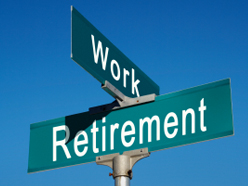
A higher level of financial preparedness doesn’t necessarily make for a happier retirement. Or so it would seem from the BMO Retirement Institute Report, which found that despite being less financially prepared for retirement, women are more likely to enjoy their retirement than men.
The report, titled Divergent Paths To Retirement: How Men And Women Plan Differently, explores the behavioural disparity displayed by women and men and its impact on their retirement planning.
“Despite the challenges that women face, we are seeing that they are actually more likely than men to enjoy their retirement,” said Tina Di Vito, head of BMO Retirement Institute. “We also see evidence that they become happier as they grow older. Men and women have noticeable differences in how they respond to both financial and non-financial changes brought on by retirement, and women are proving that they have adapted the necessary skill set to help them cope.”
Women have traditionally faced unique challenges when planning for retirement that often result in a lower level of financial preparedness when compared to men, noted the report.
One of these challenges includes lower earnings. Women are estimated to earn just 83 cents for every dollar earned by men and therefore tend to accumulate a smaller retirement nest egg. Women are more likely to have intermittent work histories owing to their frequent role as family caregiver.
And because women live three years longer than men, on average, improved longevity puts a higher demand on household resources for basic living expenses and the need to pay for healthcare needs and long-term care.
The study also found that 40% women will divorce before their 30th wedding anniversary, and the average age of widowhood for women in Canada is 56, both scenarios leading to financial set-backs.
And despite these obstacles women are happier in retirement for a number of reasons, not least of which is the fact they are more likely than men to admit they need help with retirement planning and thus avoid costly mistakes (36% versus 30%).
When selecting a financial advisor, women look for honesty and listening skills and seek advice tailored to their unique situation. Man, by contrast, tend to seek out advisors who offer the best fees and a broad range of products.
Knowing your identity can make all the difference in retirement. The report shows that men, whose identities are closely tied to their career, struggle to find a replacement for work and often suffer depression or anxiety. Women tend more to tie their identities to the relationships they build outside their jobs and are therefore better prepared for retirement, said the report.
“While there are clear differences between men and women when it comes to retirement planning, by adopting each other’s positive characteristics they both stand a better chance of planning for and enjoying a successful retirement.”
The report examines that men are more likely than women to have investments and a financial plan (61% versus 52%) and tend to be more financially engaged and confident when it comes to financial planning. Men are also more open to taking risks, the report found.